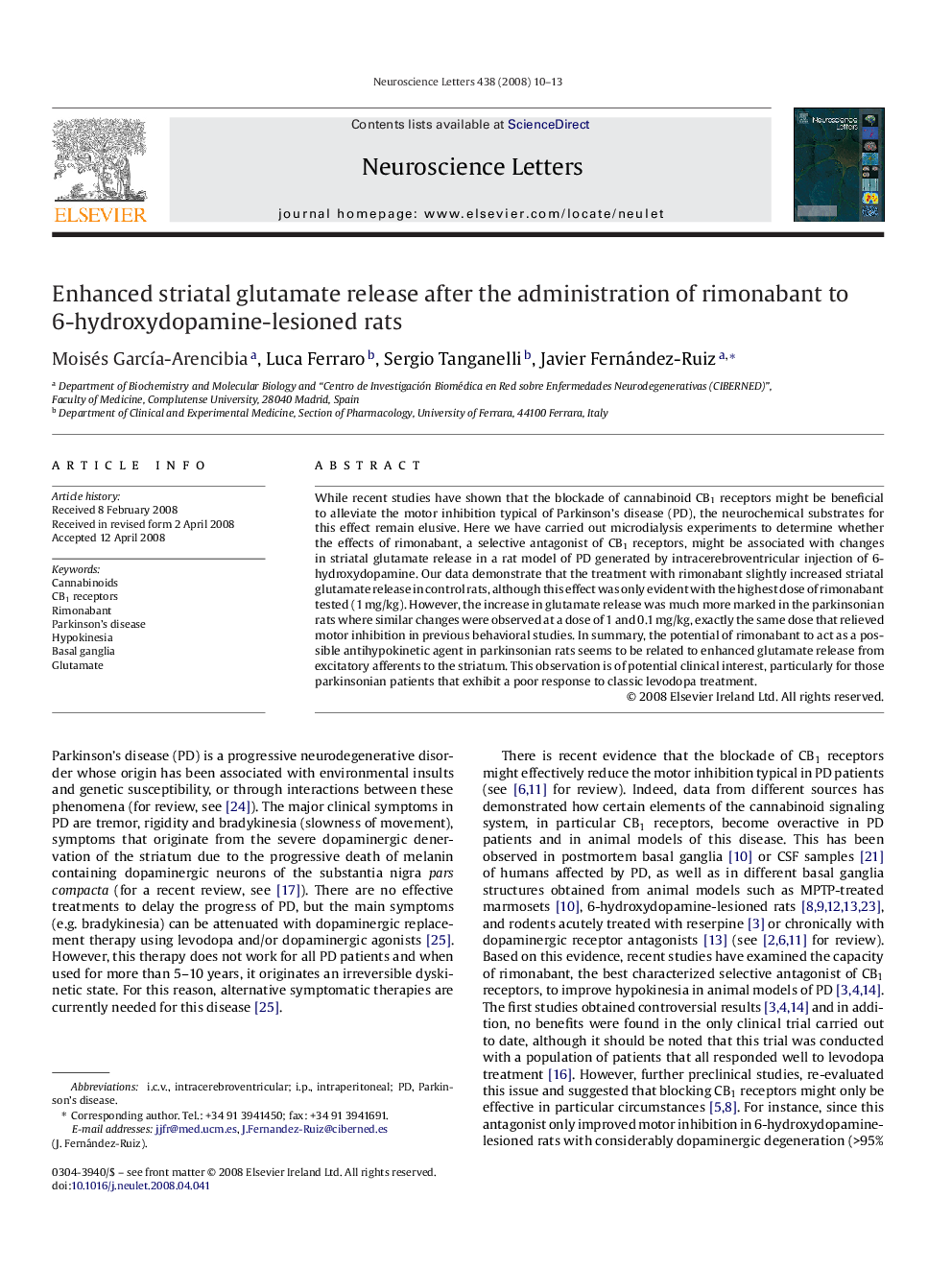| کد مقاله | کد نشریه | سال انتشار | مقاله انگلیسی | نسخه تمام متن |
|---|---|---|---|---|
| 4348406 | 1296889 | 2008 | 4 صفحه PDF | دانلود رایگان |

While recent studies have shown that the blockade of cannabinoid CB1 receptors might be beneficial to alleviate the motor inhibition typical of Parkinson's disease (PD), the neurochemical substrates for this effect remain elusive. Here we have carried out microdialysis experiments to determine whether the effects of rimonabant, a selective antagonist of CB1 receptors, might be associated with changes in striatal glutamate release in a rat model of PD generated by intracerebroventricular injection of 6-hydroxydopamine. Our data demonstrate that the treatment with rimonabant slightly increased striatal glutamate release in control rats, although this effect was only evident with the highest dose of rimonabant tested (1 mg/kg). However, the increase in glutamate release was much more marked in the parkinsonian rats where similar changes were observed at a dose of 1 and 0.1 mg/kg, exactly the same dose that relieved motor inhibition in previous behavioral studies. In summary, the potential of rimonabant to act as a possible antihypokinetic agent in parkinsonian rats seems to be related to enhanced glutamate release from excitatory afferents to the striatum. This observation is of potential clinical interest, particularly for those parkinsonian patients that exhibit a poor response to classic levodopa treatment.
Journal: Neuroscience Letters - Volume 438, Issue 1, 13 June 2008, Pages 10–13